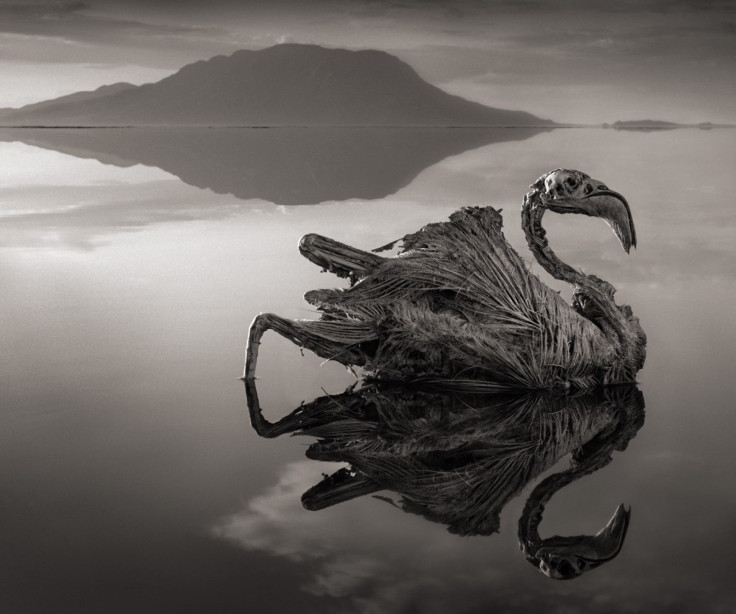Gargoyles Of Lake Natron: Deadly African Lake Turns Animal Victims To Stone

The ominous waters of Lake Natron in northern Tanzania would fit effortlessly in the pages of a ghoulish, science fiction novel.
With temperatures that reach as high as 120 degrees Fahrenheit, the extremely salty lake is too poisonous for most animals to thrive in, reports New Scientist. Usually clocking in at around 80 degrees, the lake is home to swarms of bacteria, the alkaline tilapia (Alcolapia alcalica) and other forms of life that have adapted to the lake's challenging conditions.
The lake is named for natron, a natural compound consisting of sodium carbonate and a little sodium bicarbonate. This mixture comes from volcanic ash that flows from the Great Rift Valley into the lake. Due to the high amounts of natron, animals that die in the lake are calcified, becoming preserved in an eerie, statue-like state that has been captured by photographer Nick Brandt. Brandt was captivated when he first discovered the preserved birds and other animals that washed up on the lake's shoreline and admits he "could not help but photograph them." The images are featured in his new book, "Across the Ravaged Land."
"No one knows for certain exactly how they die, but it appears that the extreme reflective nature of the lake’s surface confuses them, causing them to crash into the lake," said Brandt in his book. He describes how he took the carcasses "as I found them on the shoreline" and then positioned them in "'living' positions, bringing them back to 'life' as it were."
Though the lake is known for its darker traits, its annual role in a more upbeat occurrence redeems the harsh lake -- but just a little. Each year it serves as the primary breeding location for more than 2 million lesser flamingos, Live Science reports. The birds nest on the salt islands that form in the lake, feeding off the algae in the water. But as the calcified remains of a flamingo in the collection of photos reveals, the lake's shallow waters remain a menacing foe.
© Copyright IBTimes 2024. All rights reserved.
Join the Discussion






















